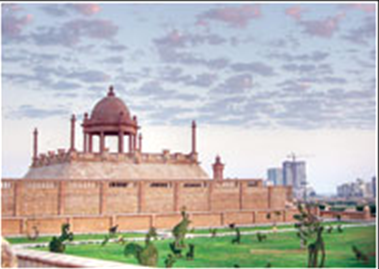Kalash
This is a collection of articles archived for the excellence of their content. Readers will be able to edit existing articles and post new articles directly |
Kalash
Few conversions in Kalash
By Maureen Lines
MY charity’s website brings me some fascinating emails. A month or so ago, there was one from a couple of American journalists. They wanted to come and visit the Kalash valleys. They wished to do a story on the Kalash, preferably about their being in a Muslim-dominated land.
The questions they asked left little doubt that they were going to make the Kalash out to be vulnerable in a Muslim world. They came with preconceived ideas that I did not endorse. After a number of emails, they suddenly disappeared. Perhaps visiting the Kalash valleys had lost their magic.
In the Kalash valleys, springs are drying up, floods are becoming more common and the winter season is becoming more severe and beginning earlier.
The Kalash valleys lie close to the Durand Line in the north. Religious scholars, adventurers, traders (in Bumburet, the path over the Shawal Pass is part of the old Silk Route) have travelled across rugged mountains since time immemorial. So may have Osama, as he once stayed in a house in Bumburet. I did also in 1998 and 1999.
I was met with kindness, hospitality and respect.
Being a medical person, I did give some medical aid, but with few drugs, due to limited financial resources; it was nothing compared to what I received.
In Chaga Serai, I met up with a group of Pakistani religious scholars fresh from Saudi Arabia. Although their views were extreme, they extended every courtesy to me. They were bright, charming young men.
On my return from Shiwi, near the front at that time (this was the time of Najibullah), I accidentally landed up in Wahabi hands, the most feared name for westerners in Afghanistan at that time. The Syrian in charge, and the Egyptian I spoke to who headed the centre and was a quiet unassuming, polite man but not overly friendly ( and bore a remarkable resemblance to a well known figure), were just as courteous and hospitable.
Although travellers do come from Taliban areas, I have never seen them try and convert the local Kalash population. I have spent much time in the Nuristani village of Shaikonondai in Rumbur. The people there mind their own business.
In Birir, Muslims outnumber the Kalash; every year, a couple of women marry Muslims; or youngsters are converted by the thought of bettering themselves. In the 28 years I have been there, I have never seen any attempt at wholesale conversion
Madressahs have opened in the area and time alone will tell if that poses a danger to Kalash culture. Hostility and suspicion of another’s religion smack of insult. To seek to find something objectionable in one’s religion is to court enmity and aggression.
